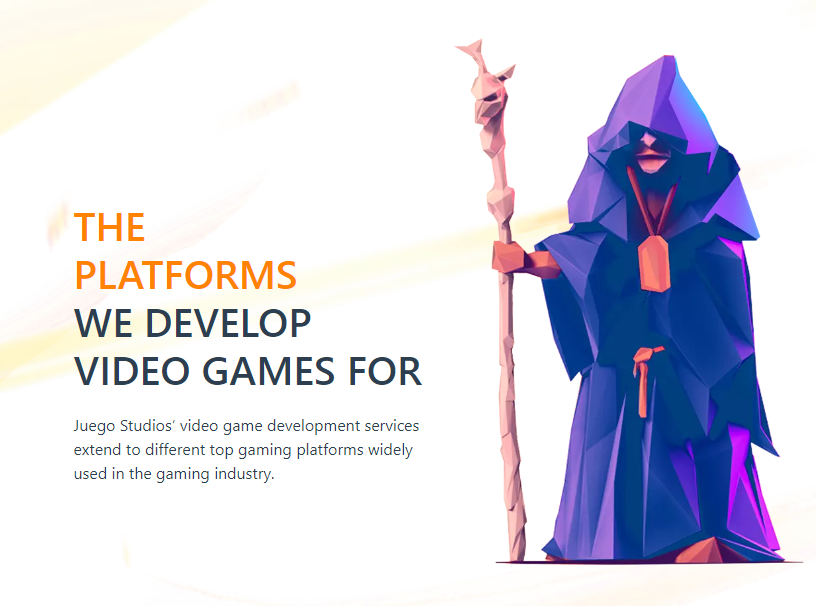Applications of IoT in The World of Gaming
With the advent of online gaming, every player worldwide could connect with one another via video game softwares and devices. This led to several innovative things comprising markets like eSPorts, genres like battle royale, and platforms like Facebook Live. Thanks to the IoT, the gaming industry was introduced to numerous monetization ways they never imagined possible. IoT in gaming is highly beneficial as it lets you create many of the latest income streams for any game.
Plus, your game development company can alleviate the cost of goods and get entitled to minimal risk. The Internet of Things in gaming has a crucial role as it lets publishers and developers connect and resonate with players without requiring any device.
Now that you briefly understand how IoT has benefited every game development company, let’s learn about its applications.
IoT Applications In The Gaming Industry 2022
The gaming business is gaining from and growing with the internet of things in many ways. Games are becoming increasingly user-friendly and adaptable concerning genres, visuals, player count, as well as the levels they may offer. Both cell phones and specialized gaming equipment help with this.
Let’s examine how IoT is influencing the gaming sector.
1. IoT Amplifies The Mobile Gaming Experience
Integrating IoT in the gaming industry with augmented reality has proven beneficial for the gaming community. It lets gamers immerse into the game and feel like they are in the game’s narrative, enabling an in-depth connection to the game.
Let’s take the example of the world-famous mobile game - Pokemon Go! This game has let players be fictional virtual pokemon trainers by ensuring a visual display that will make you feel like Pokemon exist in this real world.
Earlier, you needed to be physically tethered to your gaming console by a network of connectors and wires to enjoy a game. With Bluetooth technology, gaming controllers have become more portable, and many well-known videogames synchronize across platforms. This enables users to play solely on a single device at home and carry the game everywhere they go using their tablet or smartphone.
Based on the gaming system, this lays out several possible options for profitability and expansion.
Clearly, if players invest more time in a game, then the game title will become more famous and earn more profit. This is a highly lucrative opportunity for every mobile game development company as they can expand their horizons into other sequels or games.
Nevertheless, studios making free-to-play games will benefit the most from these increased player hours. That’s because the more time a player spends on the game, the more chances they will invest minimal amounts on bonuses and in-game upgrades.
The rising popularity of mobile gaming has the added benefit of making gaming more readily available to a broader range of individuals. Gaming consoles are costly and are frequently regarded as luxury products in several families. Nevertheless, smartphones come in a range of price points and are regarded as a necessity irrespective of one’s wealth.
2. Developing Community-Friendly, Social Games
Given the prevalence of the IoT, wireless networks that are entirely web-based and accessible from everywhere were utilized to interconnect the video games that are now being developed.
Nowadays, producers are creating more video games geared toward society as a whole. In certain instances, these games specifically target a specific age group since they believe the game is designed for them.
Given that individuals need to connect and engage in a game with one another, most games are now being created in the online multiplayer mode with the capability to link to and communicate with other partner gadgets of family members or friends to play and engage in the game together.
Such socially responsible games rapidly expand because players who are interested in playing them are more likely to tell and invite their friends and family to the game.
The capability of the gadgets to connect to one another using only a built-in gaming function is what makes the IoT’s usage in this context so exciting.
One such multiplayer game that enables the communication between players and lets them share strategies for surviving combat is Free Fire. Thus, the Internet of Things in gaming has helped the community to enjoy some really enticing social games.
3. Gamification of Non-Gaming Operations
The ability to gamify aspects of a human being’s life that haven’t been formerly gamified is among the benefits of adapting gaming principles to IoT technologies. For instance, health and wellness apps have been researching, testing, and finding different methods to make exercising more fun.
The well-known application ‘Zombies, Run!’ connects with a person’s fitness band and phone throughout a morning jog to give users the impression that they’re running from and dodging zombies and surviving the apocalyptic situation.
Due to mobile gaming, several aspects of teaching have also become more fun. Tablets are being used more and more frequently in classrooms around the nation, giving students the impression that they are playing games while still studying important foundational topics.
In elementary school, a lot of us probably played the well-known Oregon Trail Video Game. Today, more children can play similar games at a time without contending for the same machine.
4. Deeply Connect & Interact With The Media
Although IoT in gaming enables deeper media engagement, it also facilitates the ability to disregard fundamental digital safety concerns.
Take, for instance, let’s go back to Pokémon Go! The verification system utilized by players who logged in using Google accounts had quite a bug in the mobile game. By signing in using a Gmail account, users are basically granted the game accessibility to all of their documents, emails, photos, and other data.
Ultimately, the IoT can transform the gaming industry into a space where people of all backgrounds can connect over a shared interest in storytelling and activity.
Individuals from across the globe can easily integrate to play together from any location with just a single mouse click. The IoT has enormous potential for futuristic narrative and user engagement, but like with any tech, caution and investigation should be exercised.
5. Versatile Game Selection
The mobile gaming sector has become increasingly diversified in terms of offering games of different types thanks to web-based gaming and similar gadgets. Gaming can now be found on the web in various genres and subtypes.
Fitness trackers can be used to play online gaming renditions of sports such as cricket, tennis, and football. Additionally, a variety of video games, like Pokemon Go, Chess, Ludo, etc., are available in a form that allows players to invite friends and family to join them in playing.
It would also be accurate to claim that the video game industry, which is increasing due to IoT, has also changed in other areas.
Final Thoughts
IoT can enable communication and data sharing within the gaming sector. Global players can tap on one another to play the games, thanks to IoT. As a result, IoT is extensively used in the gaming creation sectors.
One such prominent game development company is Juego Studios, which leverages the power of IoT to produce ‘state-of-the-art’ video games for mobile and desktop. This Studio holds years of expertise and a high success rate in developing unique and attractive games.





